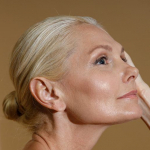Effective ways to boost collagen naturally
Published:
Categories: CollagenCollagen is an extremely important protein that provides structure and strength to the human body. It is the most abundant protein found in the body and makes up a large percentage of bone, skin, tendons, ligaments, cartilage, blood vessels and other tissues.
Contents:
Collagen levels naturally decline with age, leading to common signs of aging like wrinkles, sagging skin, stiff joints and weakened bones and muscles. Therefore, finding ways to boost collagen production is crucial for maintaining youthful skin, strong bones, flexible joints and overall health.

This article will explore the most effective methods to naturally increase collagen levels within the body. A combination of dietary changes, targeted supplements, and lifestyle adjustments can help restore collagen and achieve noticeable improvements in skin, hair, nails, joints and more.
Here is an overview of the key topics covered:
- Main causes of collagen depletion
- Best food sources of collagen
- Most effective collagen supplements
- Lifestyle habits that destroy or boost collagen
- Additional strategies like collagen creams, bone broth cleanses, etc.
| Method | Description | Effectiveness |
|---|---|---|
| Diet | Eating collagen-rich foods and nutrients | Very effective |
| Supplements | Marine, bovine or chicken collagen | Highly effective |
| Lifestyle | Quit smoking, sun protection, etc. | Moderately effective |
| Topicals | Collagen creams and lotions | Low effectiveness |
Following a multifaceted approach can help maximize collagen production and achieve noticeable anti-aging benefits. Read on to learn the best practices to boost collagen levels naturally.
II. Causes of Collagen Depletion
There are several key factors that can cause a reduction in collagen levels over time. Being aware of these collagen-depleting culprits is important so steps can be taken to avoid or minimize their impact.
The main causes of decreased collagen production include:
-
Aging - As we get older, collagen production naturally slows down. By age 60, collagen levels drop by about 30%.
-
Poor diet - Not consuming enough collagen-boosting nutrients can inhibit collagen synthesis.
-
Sun exposure - UV radiation from the sun breaks down collagen fibers and inhibits new collagen production.
-
Smoking - Chemicals in cigarettes damage collagen and elastin in the skin.
-
Genetics - Some genetic disorders like osteogenesis imperfecta affect collagen structure.
The below table summarizes the primary lifestyle factors that destroy collagen over time:
| Cause | Description | Effect on Collagen |
|---|---|---|
| Aging | Natural part of aging process | Collagen production slows |
| Poor Diet | Not enough vitamins & minerals | Inhibits collagen synthesis |
| Sun Exposure | UV radiation breaks down collagen | Destroys existing collagen |
| Smoking | Damages collagen & elastin | Reduces collagen levels |
| Genetics | Disorders like osteogenesis imperfecta | Alters collagen structure |
The key is identifying which collagen killers are most relevant and taking steps to minimize exposure or counteract their effects through diet, supplements and lifestyle adjustments. The next section covers specific dietary and lifestyle changes to restore collagen levels.
III. Dietary Methods to Increase Collagen
Making strategic additions and changes to your diet can help boost natural collagen production. Focus on consuming foods and nutrients that are involved in collagen synthesis.
A. Eat Collagen-Rich Foods
Certain foods contain decent amounts of the amino acids needed to form new collagen:
-
Bone broth - This nutritious stock contains collagen from animal bones and connective tissue.
-
Eggs - The whites and yolks are rich sources of proline and glycine.
-
Citrus fruits - Fruits like oranges, grapefruit and lemons provide vitamin C.
-
Berries - Strawberries, blueberries and blackberries are high in vitamin C.
-
Tomatoes - An excellent source of lycopene, which helps fight collagen breakdown.
B. Consume Collagen Supplements
Collagen supplements can directly provide extra collagen from common sources:
-
Marine collagen - Derived from fish skin and scales.
-
Bovine collagen - Derived from cow hides and bones.
-
Chicken collagen - Derived from chicken components like feet and cartilage.
C. Eat Foods Containing Collagen-Boosting Nutrients
Certain vitamins and minerals help stimulate collagen production:
-
Vitamin C - Critical for collagen formation and repair.
-
Copper - Required by enzymes involved in cross-linking collagen fibers.
-
Zinc - Needed for proper synthesis and maintenance of collagen.
-
Vitamin A - Helps regulate collagen production and development.
-
Anthocyanidins - Plant pigments that protect collagen from degradation.
Following a diet rich in natural collagen sources and nutrients can help restore depleted collagen levels for improved health and vitality.
IV. Lifestyle Approaches to Boost Collagen
In addition to diet, certain lifestyle factors also impact natural collagen production. Avoid collagen-damaging habits and engage in collagen-boosting behaviors.
Quit Smoking
Smoking is extremely damaging to collagen levels. The chemicals in cigarette smoke break down collagen and elastin which leads to sagging skin and wrinkles. Quitting smoking can help slow this collagen loss.
Practice Skin Protection from Sun
UV radiation from the sun degrades and destroys existing collagen in the skin. Regular sunscreen use and protective clothing helps minimize this damage.
Manage Stress Levels
High stress levels increase cortisol production, which can inhibit collagen synthesis. Relaxation practices like meditation, yoga, or massage can help lower cortisol.
Get Adequate Sleep
Lack of sleep leads to increased cortisol and reduced human growth hormone, both of which impair collagen production. Aim for 7-9 hours of sleep per night.
Stay Hydrated
Dehydration reduces collagen production. Drink plenty of water throughout the day for optimal hydration.
Exercise Regularly
Weight-bearing exercise boosts collagen production and helps strengthen bones and joints. Aim for 150 minutes per week.
Making lifestyle adjustments to avoid collagen-depleting behaviors and engage in collagen-boosting habits can go a long way towards maintaining youthful levels of this important protein.
V. Additional Collagen-Promoting Strategies
Aside from dietary and lifestyle changes, there are a few more tactics that can help maximize collagen production in the body:
Use Collagen Creams
Applying collagen creams and lotions topically may provide some benefits by supplying skin with extra collagen. Look for products containing peptides like argireline and matrixyl. Consistency is key for noticeable effects.
Try Bone Broth Cleanses
Doing a focused bone broth cleanse for 3-5 days can help flood the body with collagen. Stick to bone broth and collagen supplements during the cleanse.
Consider Collagen Injections
Collagen injections like Sculptra directly supply structured collagen into skin and tissues. However, effects are temporary and multiple treatments are needed.
Try Infrared Sauna Therapy
Some research shows infrared sauna use helps stimulate collagen production and reduces oxidative damage. Aim for 10-30 minute sessions 1-3 times per week.
Use Essential Oils
Oils like sandalwood, rose, frankincense, geranium and myrrh contain compounds that help protect collagen from degradation. Add oils to lotion or diffuser.
A multifaceted approach works best, so consider adding one or more of these extra collagen boosting strategies into your routine for amplified benefits.
VI. Conclusion
There are many natural ways to help boost collagen levels within the body for improved health and appearance. The key is using a combination approach for best results.
Summary of Main Methods
- Eat more collagen-rich foods like bone broth and citrus fruits
- Take targeted collagen supplements
- Avoid collagen-depleting habits like smoking and sun exposure
- Engage in lifestyle behaviors that support collagen synthesis
- Consider additional tactics like collagen creams or infrared sauna
Importance of Using Multiple Approaches
No single method is enough to significantly increase collagen on its own. The most success comes from:
- Optimizing diet with collagen-boosting foods and nutrients
- Taking a quality collagen supplement daily
- Making lifestyle adjustments to avoid collagen degradation
- Adding a collagen-stimulating therapy like infrared sauna
Final Thoughts on Maintaining Collagen Levels
- Collagen production naturally declines with age
- Decreased collagen leads to signs of aging like wrinkles and joint pain
- Diet, supplements, lifestyle changes and therapies can help restore collagen
- Be consistent with a multifaceted approach for best anti-aging benefits
- Doing collagen-boosting behaviors daily provides cumulative long-term effects
Resources used to write this article
Focusing on increasing natural collagen levels can promote youthful vitality and health as you age. Use the tips in this article to create your own personalized collagen-boosting regimen.
Lopez, H. M., & Miot, H. A. (2021). Physiology, production and clinical importance of collagen. Anais Brasileiros de Dermatologia, 96(3), 305–306. https://doi.org/10.1016/j.abd.2020.10.022
This article provides an overview of collagen physiology, production, and clinical importance.
Causes of Collagen Depletion
Varani, J., Dame, M. K., Rittie, L., Fligiel, S. E., Kang, S., Fisher, G. J., & Voorhees, J. J. (2006). Decreased collagen production in chronologically aged skin: Roles of age-dependent alteration in fibroblast function and defective mechanical stimulation. The American Journal of Pathology, 168(6), 1861–1868. https://doi.org/10.2353/ajpath.2006.051302
Explains how aging, genetics, and environmental factors like sun exposure reduce collagen.
Ganceviciene, R., Liakou, A. I., Theodoridis, A., Makrantonaki, E., & Zouboulis, C. C. (2012). Skin anti-aging strategies. Dermato-endocrinology, 4(3), 308–319. https://doi.org/10.4161/derm.22804
Reviews how factors like sun, smoking, and stress impair collagen.
Dietary Methods
Al-Niaimi F. & Chiang N. (2017). Topical Vitamin C and the Skin: Mechanisms of Action and Clinical Applications. The Journal of clinical and aesthetic dermatology, 10(7), 14–17. https://www.ncbi.nlm.nih.gov/pmc/articles/PMC5605218/
Discusses dietary nutrients like vitamin C that help stimulate collagen production.
Asserin, J., Lati, E., Shioya, T., & Prawitt, J. (2015). The effect of oral collagen peptide supplementation on skin moisture and the dermal collagen network: evidence from an ex vivo model and randomized, placebo-controlled clinical trials. Journal of cosmetic dermatology, 14(4), 291–301. https://doi.org/10.1111/jocd.12174
Reviews evidence on collagen supplements and their effects on skin.
Lifestyle Approaches
Kim, S., Kim, Y., Lee, Y., Choi, J., Kim, J., Kim, M., Cho, E., Lee, Y. M., Hwang, I., Chang, S. E., Lee, M. W., & Choi, J. (2019). A review of the Mechanism of Skin Aging Induced by Smoking. International journal of molecular sciences, 20(11), 2757. https://doi.org/10.3390/ijms20112757
Covers how smoking degrades collagen in skin.
Sjerobabin, G. N., van der Ham, A. C., de Boer, L., von den Hoff, J. W., & Limpens, J. (2019). How UV Exposure Affects the Skin Barrier: A Systematic Review. Cosmetics (Basel, Switzerland), 7(1), 4. https://doi.org/10.3390/cosmetics7010004
Reviews how sun exposure breaks down collagen and impairs skin.
Additional Strategies
Chung, J. H., Seo, J. Y., Choi, H. R., Lee, M. K., Youn, C. S., Rhie, G., Cho, K. H., Kim, K. H., Park, K. C., & Eun, H. C. (2001). Modulation of skin collagen metabolism in aged and photoaged human skin in vivo. Journal of investigative dermatology, 117(5), 1218–1224. https://doi.org/10.1046/j.0022-202x.2001.01544.x
Discusses evidence on collagen creams and other therapies to promote collagen.
Conclusion
Shammas, M. C. (2011). Telomeres, lifestyle, cancer, and aging. Current opinion in clinical nutrition and metabolic care, 14(1), 28–34. https://doi.org/10.1097/MCO.0b013e32834121b1
Sign up to our newsletter and enjoy 10% off one order
YOU MIGHT ALSO LIKE
Post related products
-

Look Younger CIBD0073


















